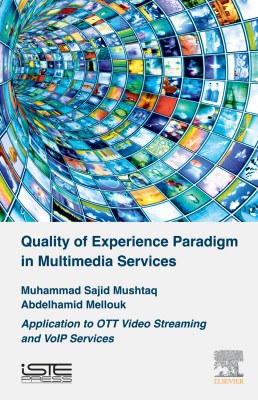
The analysis of QoE is not an easy task, especially for multimedia services, because all the factors (technical and non-technical) that directly or indirectly influence the user-perceived quality have to be considered.
This book describes different methods to investigate users’ QoE from the viewpoint of technical and non-technical parameters using multimedia services. It discusses the subjective methods for both controlled and uncontrolled environments. Collected datasets are used to analyze users’ profiles, which sheds light on key factors to help network service providers understand end-users’ behavior and expectations. Important adaptive video streaming technologies are discussed that run on unmanaged networks to achieve certain QoS features.
The authors present a scheduling method to allocate resources to the end-user based on users’ QoE and optimizes the power efficiency of users’ device for LTE-A. Lastly, two key aspects of 5G networks are presented: QoE using multimedia services (VoIP and video), and power-saving model for mobile device and virtual base station.
1. Background and Contextual Study.
2. Methodologies for Subjective Video Streaming QoE Assessment.
3. Regulating QoE for Adaptive Video Streaming.
4. QoE-based Power Efficient LTE Downlink Scheduler.
5. QoE and Power-saving Modelfor 5G Network.
Muhammad-Sajid Mushtaq is a lecturer and researcher at the University of Paris-Est Créteil (UPEC), France. His research interests include Machine Learning, QoE, and QoS of heterogeneous networks.
Abdelhamid Mellouk is a permanent Full Professor at the University of Paris-Est Créteil (UPEC), France. Head of several executive national and international positions, he has held several leadership offices in IEEE Communications Society Technical Committees and has published/coordinated more than ten books in addition to numerous keynotes and plenary talks in flagship venues.